Resin collection has been a traditional work in different areas in the Iberian Highlands for decades, particularly in the Alto Tajo region. However, the characteristics of the market, price fluctuations and rural depopulation have led this traditional craft almost to extinction. Despite this, resin could be an opportunity for the region, and the Resin School run by Rewilding Spain in the Molina de Aragón-Alto Tajo region wants to help take advantage of it.
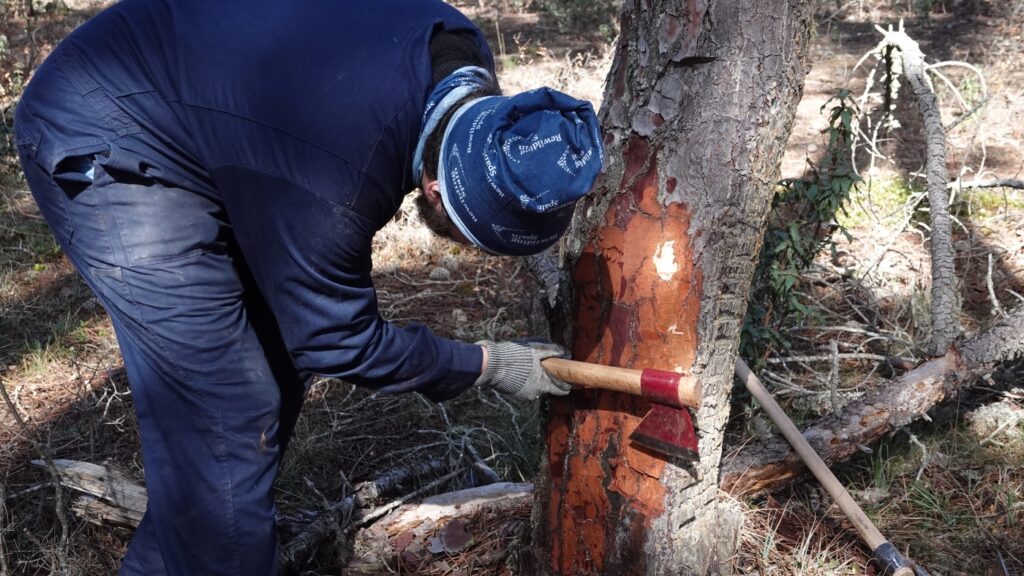
Resin collection has been a traditional work in different areas in the Iberian Highlands for decades, particularly in the Alto Tajo region. However, the characteristics of the market, price fluctuations and rural depopulation have led this traditional craft almost to extinction. Despite this, resin could be an opportunity for the region, and the Resin School run by Rewilding Spain in the Molina de Aragón-Alto Tajo region wants to help take advantage of it.
“It is estimated that there are 10,000 hectares of Pinus pinaster, the resin pine par excellence, located north of the Tagus River canyon, which represents the potential to create jobs for up to 100 resin collectors,” explains Basilio Rodríguez, head of Nature for People at Rewilding Spain and director of the Resin School. This training initiative is part of the Bosque Innova project, funded by the Biodiversity Foundation, and it is the first training centre specialising in this activity in Castilla-La Mancha.
Since its launch in January, seven students have the opportunity to learn the trade of resin tapping by experiencing all stages of the work throughout the different seasons of the year. Nearly fifty people applied for the available vacancies at the school, and five men and two women were finally selected, considering their background and motivations. Now, they work as trainee resin tappers and receive a monthly salary.
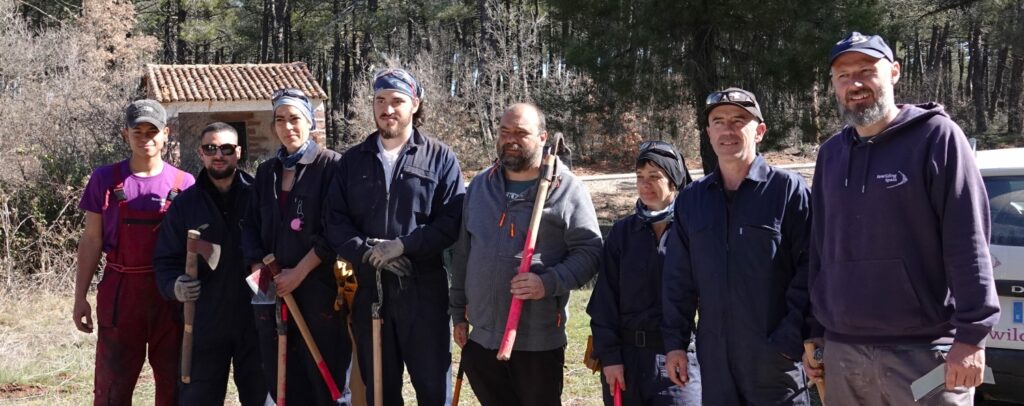
In addition to the resin tapping trade, these student-workers are learning to perform other forestry tasks and to operate specific machinery used in the sector. Resin collection is a seasonal activity and does not last all year round. Therefore, the aim of this complementary training in forestry tasks is that, when the course ends in November, participants will have more opportunities to find a job in this sector.
Ángel Álvarez, from Madrid, is one of these trainees. He graduated in Business Administration and Management and had several jobs before realising that “what I really liked was working outdoors in connection with nature.” This led him to a higher vocational training qualification in Forest Management and, through a job bank at his training centre, to the Resin School in the Iberian Highlands. To join the school, Ángel moved from Madrid to the small village of Cobeta (Guadalajara), one of the three municipalities in the region, along with Corduente and Torremocha del Pinar, where the ‘matas’ are located. ‘Mata’ is the specific word in resin sector that refers to the group of pine trees where each resin collector works during the season.
After the training, Ángel hopes to “keep on with this lifestyle that I love” in the landscape, a place he didn’t know about before moving to Cobeta and where he would like to develop professionally in the future.
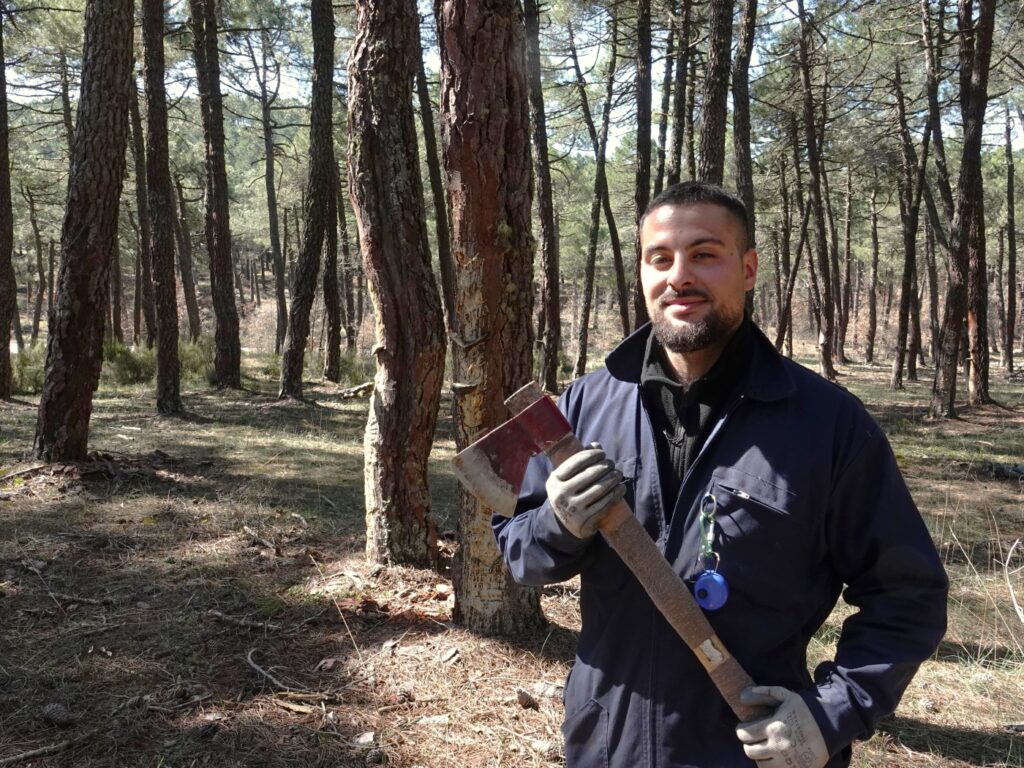
Noemí Alameda was also born in Madrid and holds a degree as forest engineer, as well as a deep background in working in rural areas. Learning to be a resin collector is an opportunity for Noemí to expand her knowledge and the possibilities of continuing to earn her living in the region. She has been living in the province of Guadalajara for years, where she has family roots and can lead the lifestyle she wanted for herself and her son. “I like working in the natural environment and this is an opportunity to continue learning,” says Noemí, who believes that the new skills she’s acquiring have potential for her future. “If resin prices remain stable or increase, I do see potential, depending on how the market goes. It’s very hard work and it has to be worth it. And resin tapping can be a unique job or a complement to others” she adds.
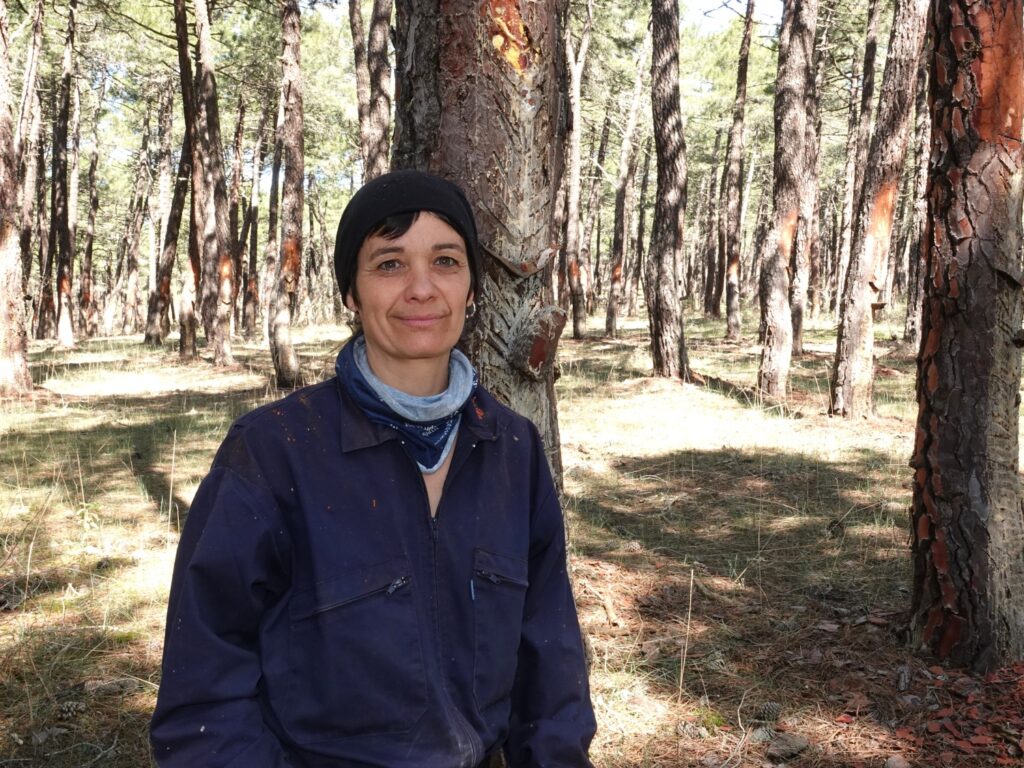
Being a resin collector is hard and demanding work, both physically and psychologically. Large areas of land to manage all the trees in each forest have to be covered. It’s also a solitary work, and a significant part of it is carried out in the summer, the hottest time of the year. As well, it can provide high rewarding. As Ángel Álvarez explains, “it’s something you do with your own hands and in a natural environment. If you like being alone and the mountains, it’s great.”
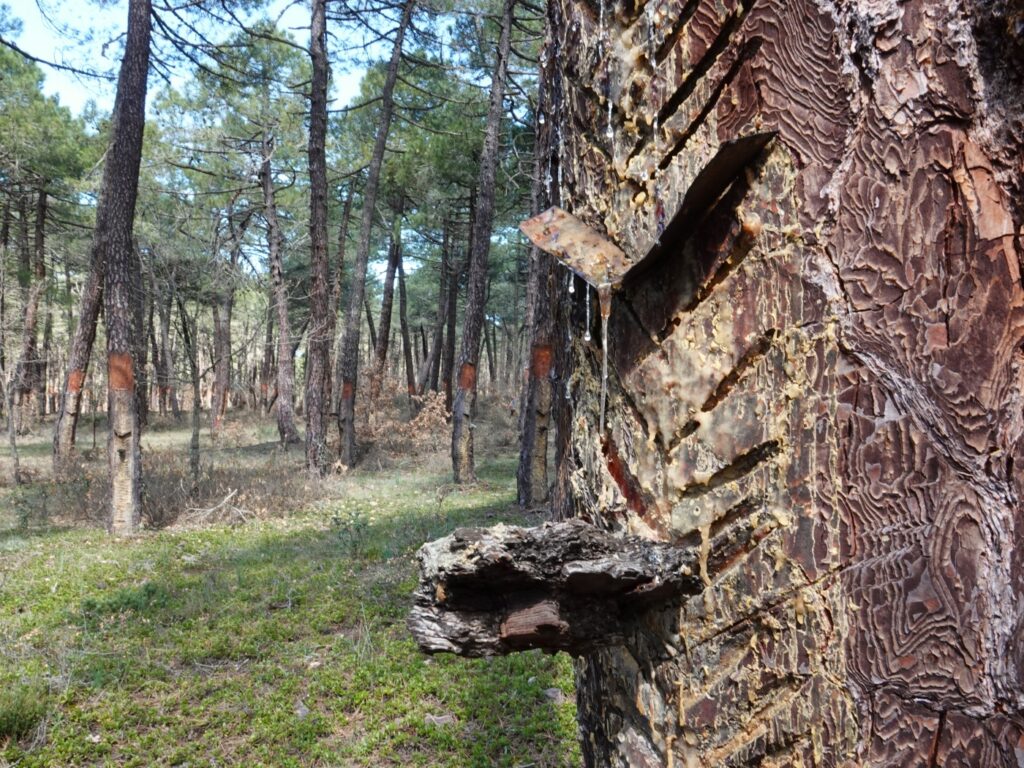
Resin is a sustainable product whose extraction has traditionally generated social, environmental and economic benefits for the areas where it is produced, generally rural areas with depopulation problems. Two essential components are obtained from it, turpentine essence and rosin, which have numerous industrial applications in fields such as decoration, cosmetics, adhesives, and construction, among others.
Bosque Innova project
This Resin School, which aims to boost this traditional trade in the area, is one of the initiatives that have been launched in the landscape thanks to Bosque Innova project, an initiative aimed at creating jobs and green entrepreneurship, promoting forest management and improving biodiversity in the Iberian Highlands. Rewilding Spain is part of this project, together with Fundación COPADE, Fundación General CSIC, FSC Spain and Asociación Ecómetro.
The Bosque Innova project is supported by Fundación Biodiversidad of the Ministry for Ecological Transition and Demographic Challenge (MITECO), within the framework of the Recovery, Transformation and Resilience Plan (PRTR), funded by the European Union – NextGenerationEU.
